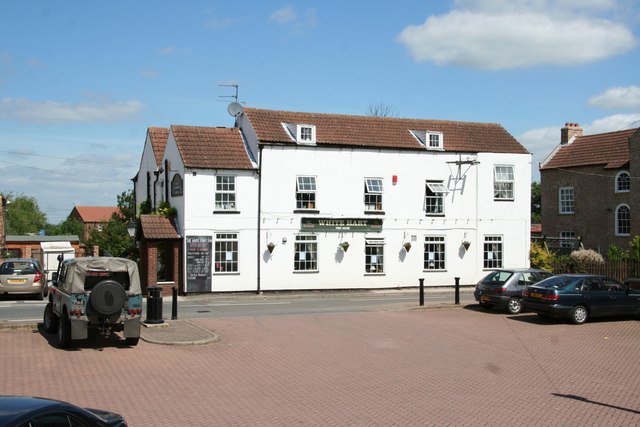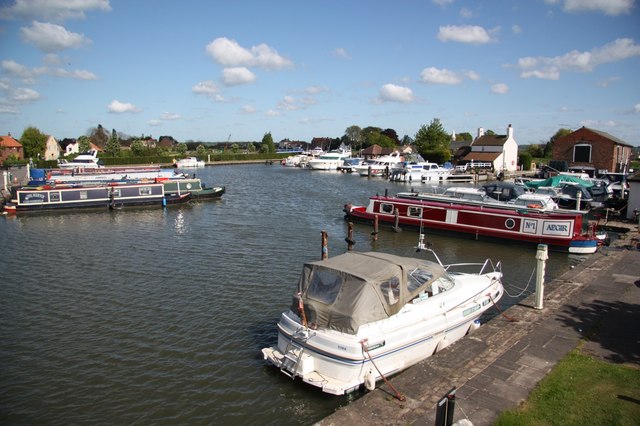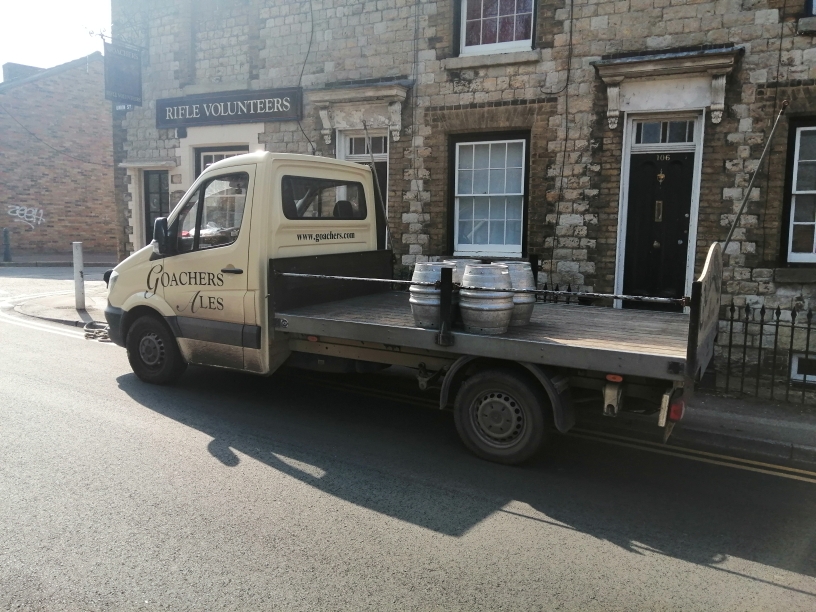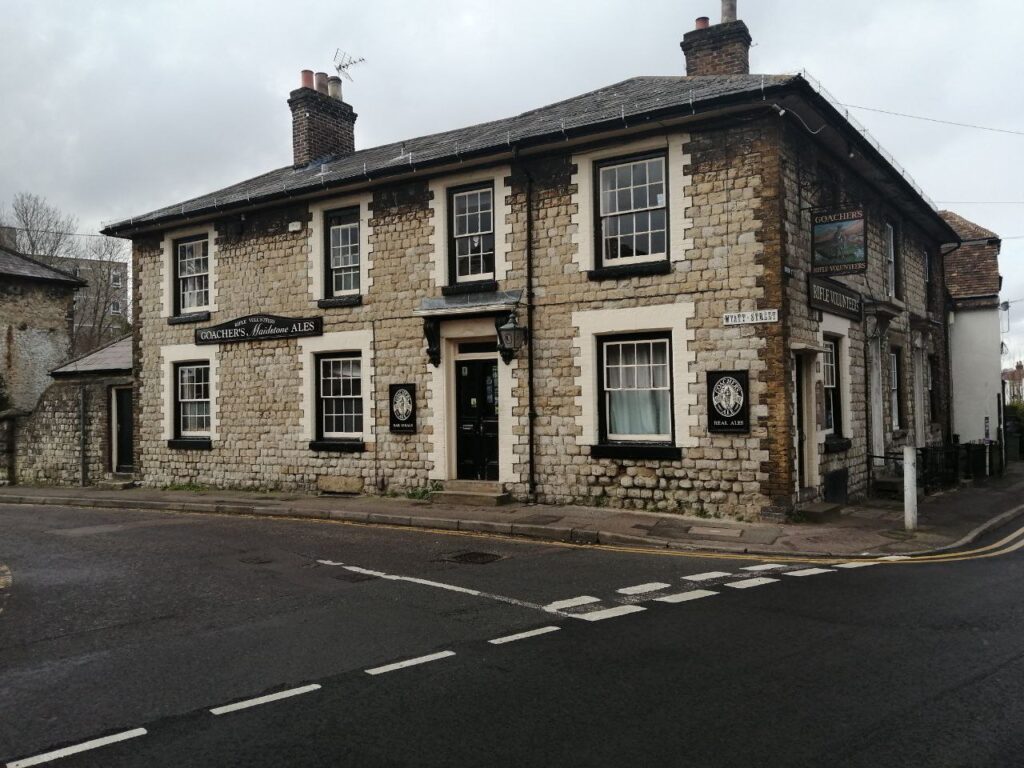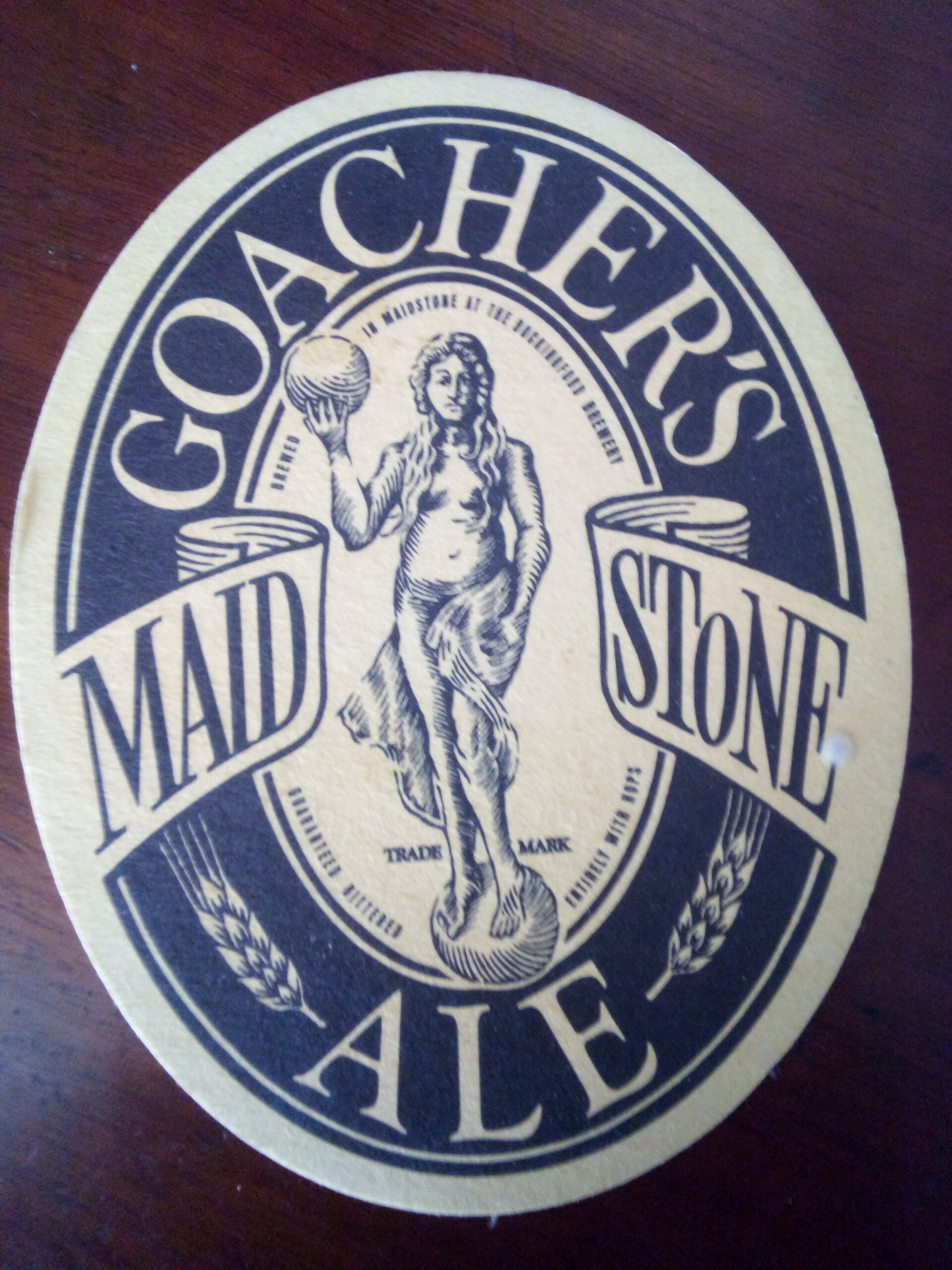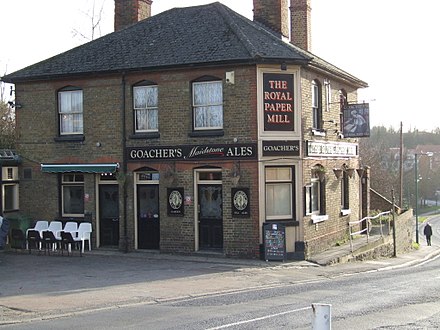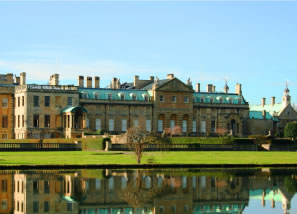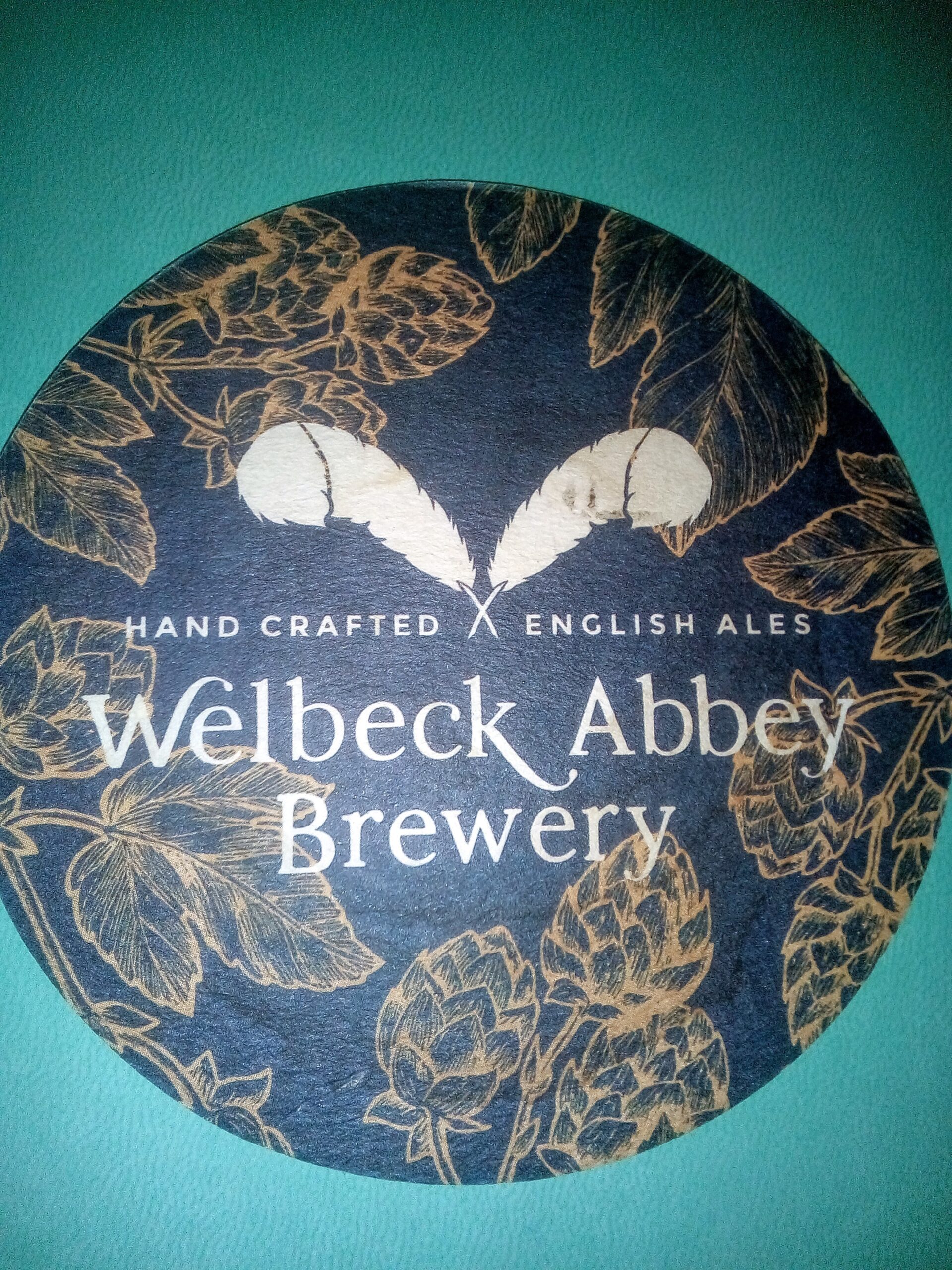High Brecks Farm, East Markham, Nottinghamshire
Website: Pheasantry Brewery
About the brewery
Mary Easterbrook comes from old Nottinghamshire farming family who still farm at Babworth. In 2008, Mary and her husband Mark bought High Brecks Farm in East Markham. The Grade II listed farmhouse was derelict and the farm needed extensive renovations. The outbuildings were listed and couldn’t be demolished but were no longer suitable for the needs of modern farming. The Easterbrooks therefore decided the best way forward was to diversify and use the buildings as a cafe (now a wedding venue) and microbrewery. The brewery took its name from the cottage next door, which had historically been used for breeding and rearing game birds.

This was not the first time High Brecks farm had been involved in the brewing trade. It had previously been the site of a brew house that produced beer for the personal use of the Kirke family, who owned the farm from the late 17th century onwards. According to a farm sale brochure (1943) one of the fields near the current brewery gardens was called The Hopyard, and wild hops still grow in the nearby hedges, as in many parts of North Nottinghamshire.
The first beers produced by the new Pheasantry Brewery were Best Bitter, a 3.8% ABV traditional bitter, a 4.0% Pale Ale and a 4.2% Dark Ale.
The brewery has had considerable success in the bottled market, supplying supermarkets. In 2019, it opened a new bottling line that can produce up to 2,000 bottles an hour which was opened by Robert Jenrick MP and was part-funded by the European Agricultural Fund for Rural Development. This investment also enables the brewery to offer a bottling service to other breweries, cider, water and soft drink manufacturers.
East Markham is an Anglo-Saxon place name meaning the settlement (‘ham’) near the boundary (‘mearc’). Mearc developed into the modern English word ‘mark’ or ‘marker’. This suggests that the village was on the boundary between two areas – possibly between two Ancient British kingdoms. This boundary may be the the southernmost extent of the area known as Bernetseatte, a kingdom that remained substantially British even after the Anglo-Saxon settlement. Bernetseatte (Burnt Land) became Bernesedelaue and eventually Bassetlaw.
Regular beers
Best Bitter (ABV 3.8%) is a copper coloured beer with fruity highlights and a hoppy finish. It was voted Champion Bitter of Britain in 2015.
Black Pheasant (ABV 4.2%) is a dark ale with malty flavours and a velvety texture.
Dancing Dragonfly (ABV 5.0%) a pale golden ale packed with exotic fruit flavours.
Excitra (ABV 4.5%) is a golden ale with a bright almost orange appearance and a citrous punch from the judicious use of citra hops.
Lincoln Tank Ale (ABV 4.2%) is a classic amber ale – malty, hoppy and soft – that was designed to raise money for the Lincoln Tank Memorial.
Pale Ale (ABV 4.0%) is a dry pale ale with a vanilla and floral aroma.
Ringneck Amber Ale (ABV 4.1%) is an amber ale with a hint of caramel made with Fuggles, First Gold, Progress and Slovenian aroma hops.
Regular seasonal beers and specials
Pheasantry have a seasonal calendar of beers released every month.
Almost Dry January (ABV 3.0%) a malty amber ale that has a biscuity, malty and herby aroma. Available in January.
American Pale Ale (ABV 4.3%) a pale floral and citrus ale. Available in August.
Aurora (ABV 4.8%) a golden ale with hints of lemon, tangerine and gooseberry and a spiced finish. Available in June and November.
Beer Humbug (ABV 4.5%) a dark Christmas ale with chocolate and malty flavours and a sweet fruity edge. Available in December.
Best Christmas (ABV 3.8%) a copper coloured session ale with a fruit taste and spicy aroma. Available in December.
Black Dragonfly (ABV 4.5%) a pale ale with roasted flavours. Available in November.
Christmas IPA (ABV 5.9%) a strong ale with a herbal taste and earthy bitterness. Available in December.
First Gold (ABV 4.7%) a pale golden ale that balances bitterness with lemongrass. Available in July.
Harvest Ale (ABV 3.6%) a light-coloured session summer ale. Available in July.
HBA (ABV 4.3%) a brown ale with a toasty flavour combined with a dark malty sweetness and lots of hops. Available in October.
Light Dragonfly (ABV 3.9%) a session golden ale – a lighter version of Dancing Dragonfly. Available in March and August.
Magnipheasant 7 (ABV 4.3%) an amber ale with citrus hops. Available in February and September.
Mikado (ABV 5.0%) a strong dark mild. Available in May.
Munich Helles (ABV 4.8%) a hoppy lager style beer. Available in October.
New Zealand Pale (ABV 4.6%) a pale ale with hints of tropical fruits and crushed gooseberries. Available in May.
Orange Pheasant (ABV 6.0%) a strong golden beer which tastes of orange marmalade with a hint of grapefruit. Available in September.
Ruby Red (ABV 4.7%) a dark ruby red ale with malty overtones and stone fruit flavours. Available in February.
S1ngle Hop Willamette (ABV 4.5%) a pale ale that uses the Willamette hop to add a herbal and spicy flavour with a touch of pine. Available in April.
Scottish 80/- Export (ABV 4.7%) a traditional strong Scottish ale with a rich, dark and malty flavour. Available in January.
S1ngle Hop El Dorado (ABV 4.4%) a pale ale with tropical flavours. Available in June.
Spring Ale (ABV 3.8%) a pale ale with lemon grass flavours and floral notes. Available in April.
Stout (4.8% ABV) a coffee-chocolate stout. Available in March.
In 2020 Pheasantry produced Pilgrim to celebrate the 400th anniversary of the Pilgrim Fathers sailing off on the Mayflower.
Fancy a pint?
Lincolnshire and Nottinghamshire Co-ops stock Pheasantry’s bottled beers.
Pubs that stock Pheasantry’s beers include the Magna Carta in Lincoln and The Idle Valley in Retford.
Tours and takeaways
The onsite shop sells bottles, 5l mini kegs (9 pints), 36 pint pins and 72 pint casks. Unusually, the brewery is licensed as a wedding venue and for other corporate and family events.

